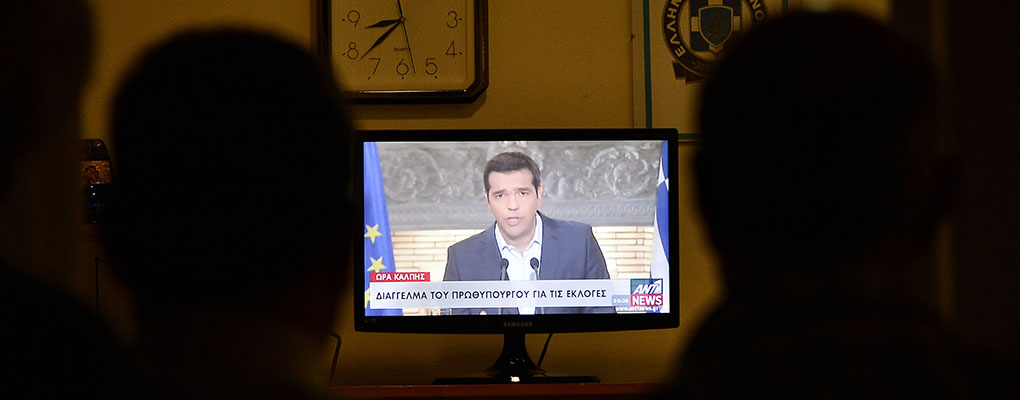
Following a tumultuous but short time in office, leader of the ruling Syriza party, Alexis Tsipras, announced his resignation on August 20. It is expected that the second and third largest political parties will waive their right to form an administration, instead approving snap elections. Experts predict that the national vote will take place earlier than the previously indicated date, September 20.
The television address given by Tsipras was made on the same day that Greece received €13bn – the first part of a new €86bn bailout package, which will be given over the next three years. The payout enabled the government to fulfil a debt repayment of €3.2bn to the ECB, thereby allowing it to avoid default.
Greece’s economic hole is so deep that loans are simply not enough to fill it
During his speech, Tsipras said that it was now up to the people to decide if the agreement reached with Eurozone leaders is enough to overcome the current situation the country faces. “I want to be honest with you. We did not achieve the agreement we expected before the January elections,” he said. “I feel the deep ethical and political responsibility to put to your judgment all I have done, successes and failures.”
Tsipras passionately took to his post in January, winning through promises to alleviate austerity and bring relief to the Greek people. Despite starting with such conviction, over the course of the past seven months Tsipras has gradually shifted from this strong stance and relented to the very conditions that he initially rejected. After months of laborious and unsuccessful negotiations, the prime minister approved the kind of package that his predecessors adopted just a few years before – making more enemies in Europe and within his own party in the meantime. In an unsurprising move, on August 21, 25 MPs within Syriza broke away to form their own party, Popular Unity.
From the beginning of his controversial term, it was evident that Tsipras would have no choice but to agree to the austerity measures required to secure a new bailout deal. To his credit, Tsipras tried ardently to negotiate a better package, for which he still has support from Syriza voters, but simply put, the economy is not yet in a position to dismiss tax rises, the ‘solidarity tax’ for the unemployed and pension cuts. Of course, it is dire for those living in increasingly impoverished conditions for several years now, but not enough has been done for the situation to be otherwise. Greece’s economic hole is so deep that loans are simply not enough to fill it. The fundamental shift needed starts with tax, specifically a tax to those that avoided paying for so many years. Until this is achieved, the poorest will continue to be hit hardest of all, while the economic future of the country maintains a bleak outlook.


